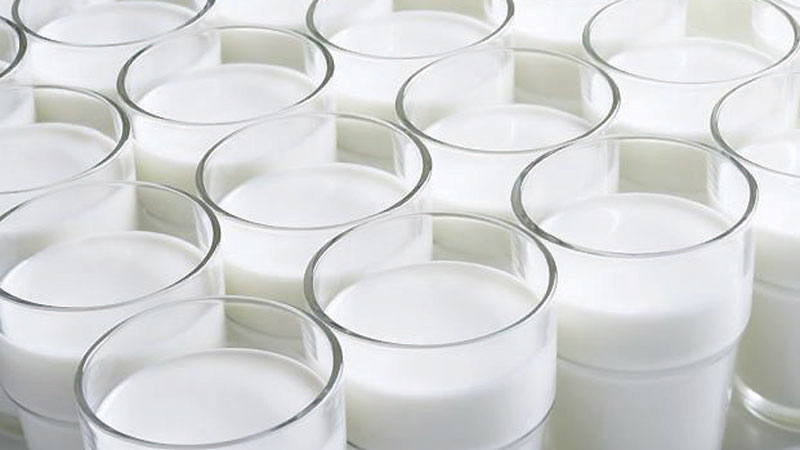

BUSINESS REPORTER -
MUSCAT, JUNE 5 -
Under 50 per cent of all adults and children in Oman consume more than two glasses of milk a day, a new survey by Mazoon Dairy on World Milk Day reveals
Only 44 per cent of all Omanis and expatriates drink more than two glasses of milk every day according to a nationwide consumer survey conducted by Mazoon Dairy to mark World Milk Day on June 1.
The new survey was undertaken by Mazoon Dairy, the flagship dairy company of the Sultanate of Oman, to assess dairy consumption habits in Oman and identify gaps in the market. The survey comes as construction work continues at its site in Al Sunayna with production earmarked to commence before the end of 2018.
Researchers also found that only one third of teenagers consumed more than two glasses of milk per day, indicating that there is a need for dairy products that especially appealed to their tastes and preferences to ensure they benefit from the health and nutrition fresh milk provides.
The nationwide survey assessed consumption habits among Omanis and expatriates in both urban and rural locations in the Sultanate.
Commenting on the survey results, Dr Arjun Subramanian from Mazoon Dairy, said: “The findings from our first ever survey on milk consumption habits in the Sultanate clearly show that there is a need for better quality, more variety and more wholesome and nutritious homegrown dairy products.
“Children and adults are not drinking as much milk as they should either because of the lack of awareness about the nutritional benefits of milk or the lack of variety of dairy products. The results show a need for education and to encourage young people in particular to drink more milk to help with their nutritional requirements, combat calcium deficiency and help deliver the energy needed for an active lifestyle.
“Mazoon Dairy is committed to addressing this need when we launch production by end of 2018 — and our extensive portfolio of products promises to appeal to every segment of the population.”
Encouragingly however, the survey found that parents are doing everything they can to encourage their children to drink milk. A majority of parents said that they made it a point to encourage their child to drink milk either by pouring them a glass of milk, substituting other beverages with milk, or educating them about the benefits of milk as an ingredient in other foods like pancakes and cereals.
When it comes to overall tastes and preferences, 79 per cent of non-Arab expats polled indicated that they preferred full cream fresh milk, whereas only 54 per cent Omani nationals were partial to this category. More than half of all respondents said that they preferred low fat fresh milk, which is in keeping with market demands for healthier dairy alternatives.
The survey also found that consumption of milk in the rural areas was slightly higher than in the urban areas, with 82 per cent of people in rural Oman consuming milk more regularly compared to 72 per cent in the urban centres. The popularity of long life and UHT milk is also fairly evenly distributed, with 22 per cent consuming products in the urban areas and 20 per cent in the rural areas respectively.
Meanwhile when purchasing milk, the nutritional value of milk and the added benefits of calcium emerged as the most important reasons to buy, followed by consistent taste, shelf life, availability of low fat options and wider choice. Price, easy availability and locally-sourced products also emerged as important purchase drivers.
Dr Arjun added, “Mazoon Dairy was established to introduce a healthy lifestyle among all people, meet the nutritional needs of children and adults in Oman, and combat Vitamin D deficiency in the country and the region.
“Our ultimate goal is to produce over 200 million litres of milk by 2026, which will contribute to achieving self-sufficiency, and ensure the sustained growth of the domestic food production sector in the country and play a vital role in enhancing food security within the Sultanate.”
Oman Observer is now on the WhatsApp channel. Click here



